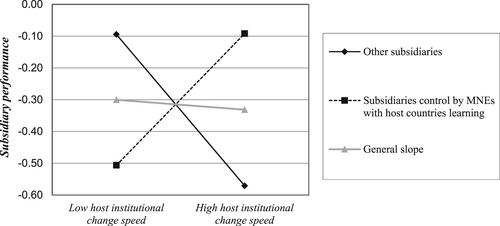Speed of institutional change and subsidiary performance: The moderating impact of home and host country learning
Abstract
Research summary
This research examines the role played by home and host country learning in the relationship between the speed of institutional change and subsidiary performance. We posit a negative relationship between the speed of institutional change in the host country and subsidiary performance. We also argue that this relationship is contingent on the institutional learning that parent multinationals (MNEs) have previously attained in other countries. By integrating the dynamic institution-based view and the organizational learning literature, our analysis highlights the key role that abilities and skills developed by MNEs to face rapid institutional changes have on the host countries in which they operate. We test our theoretical model using a sample of 342 subsidiaries from 68 MNEs operating in emerging and developed economies during 2001–2017.
Managerial summary
MNEs regularly face institutional changes in both home and host countries. However, institutions evolve at different speeds. According to previous studies, the performance of subsidiaries is threatened when institutional changes happen quickly. MNEs need to develop the ability to help their subsidiaries face changes immediately and with no loss of performance. Our research shows that MNEs can learn from prior rapid institutional changes in the home and host countries and transfer this knowledge to their subsidiaries so that they can be more equipped to deal with it in the future.


 求助内容:
求助内容: 应助结果提醒方式:
应助结果提醒方式:


